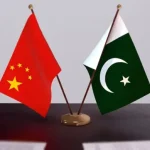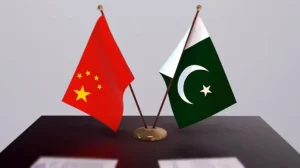In a major boost to regional cooperation under the Belt and Road Initiative (BRI), the Belt and Road Initiative for Sustainable Development (BRISD) and CIIC International Education Technology (Beijing) Co., Ltd. have signed a Memorandum of Understanding (MoU) to jointly advance workforce training, vocational education, and capacity-building programs across BRI partner nations.
The agreement, signed in Beijing by BRISD Chairman Qaiser Nawab and CIIC General Manager Duan Xiaofei, marks a significant step toward tackling youth unemployment and bridging skills gaps in the region. The initiative will launch its first phase in Pakistan in July 2025, targeting an initial cohort of 10,000 young participants. Organizers aim to scale the program to reach 100,000 youth across multiple BRI countries in the coming years.
Funded by CIIC, the program will focus on vocational training, skills certification, industry-academia collaboration, and job placements—particularly within projects linked to the China-Pakistan Economic Corridor (CPEC). The dual focus on skill-building and employment is designed to ensure long-term impact for youth in Pakistan and the broader Global South.
“Pakistan’s young population is one of its greatest assets,” said Qaiser Nawab. “This program addresses the urgent need to equip them with relevant skills and connect them with meaningful employment, especially in emerging sectors tied to BRI development.”
He emphasized that the partnership with CIIC brings not only financial support but also technical expertise, ensuring high-quality training that meets global industry standards. “The goal isn’t just to train youth—it’s to empower them with real career pathways,” he added.
Participants who complete the training will gain access to job opportunities with Chinese companies operating in BRI countries, including those engaged in key CPEC projects. This strategy aims to create a sustainable pipeline of skilled workers for the growing infrastructure and industrial sectors across the BRI network.
CIIC’s General Manager, Duan Xiaofei, echoed the significance of the initiative, calling it “a meaningful step toward strengthening technical education and deepening the professional and cultural ties between China and Pakistan.”
The program underscores the evolving nature of the BRI, expanding its focus beyond infrastructure to include human capital development—positioning youth at the heart of long-term regional progress.










More Stories
NUST and UoS advance strategic ties with China on skills development